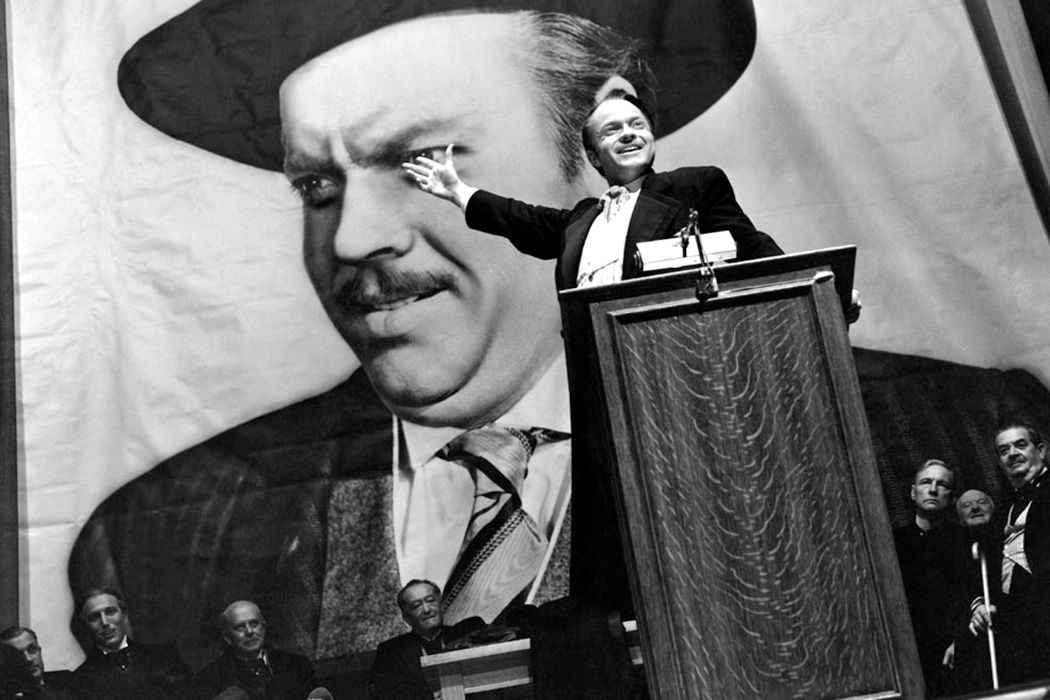Monday
One comment in particular jumped out at me in Donald Trump’s press conference about the North Korea summit, in part because it reminded me of a line in the president’s favorite film. When an understandably skeptical press wondered whether Kim Jung-un would follow through on promises to denuclearize, Trump replied,
I think he will do these things. I may be wrong. I may stand before you in six months and say, hey, I was wrong. I don’t know I’ll ever admit that. I’ll find some excuse.
In other words, if things go badly—and they well might—then he’ll spin the failure away in some way. We know enough about Trump to know he’ll never say he was wrong.
In Trump’s beloved Citizen Kane, a toadying Bernstein at one point reminds Kane that he has promised to buy a lot more statues and pictures in Europe. With a roguish smile, Kane replies, “You don’t expect me to keep any of those promises.” He is charming and funny when he says it and everyone laughs, but in the scene we see a man who thinks he can play fast and loose with promises and is confident that people will love him regardless of what he does.
It is the ultimate con: you tell your marks that you con people and, instead of distrusting you, they feel in on the game. It’s as though you’ve granted them a special place of honor close to you.
Kane never loses Bernstein’s loyalty, but Jed Leland is another matter. While he’s willing to play Kane’s “stooge” for a long time, he pulls away when he recognizes the full scale of Kane’s narcissism (on election night) and then precipitates a crisis rather than sell his artistic soul (he refuses to praise the singing of Susan Alexander). He recognizes that this man who creates his own reality—“You provide the prose poems. I’ll provide the war,” Kane tells his correspondent in Havana—is addicted to adulation. As Leland tells him,
You don’t care about anything except you. You just want to persuade people that you love ’em so much that they ought to love you back. Only you want love on your own terms. Something to be played your way, according to your rules.
And earlier:
You talk about the people as though you owned them, as though they belong to you. Goodness. As long as I can remember, you’ve talked about giving the people their rights, as if you can make them a present of Liberty, as a reward for services rendered.
Inside Kane is a vast emptiness that can never be filled and he dies bitter and alone. That makes his story a sad one. His narcissism becomes dangerous when it is linked with political power. Kane’s relationship with Hitler and Mussolini, which we see in a newsreel, is reminiscent of Trump’s regard for authoritarians like Kim Jung-un, Putin, Erdogan, and Duarte. In the film, Kane downplays the damage they can do when asked by reporter about “the chances for war in Europe.” Kane replies with supreme confidence,
I’ve talked with the responsible leaders of the Great Powers – England, France, Germany, and Italy – they’re too intelligent to embark on a project which would mean the end of civilization as we now know it. You can take my word for it. There’ll be no war.
One believes such men because of their confidence, not because they understand what’s going on.
Of more interest to me than either Trump or Kane, however, is why so people embrace authoritarian narcissists. In that regard, I think Margaret Atwood is onto something in her Circe/Mud poems. There she explores why Circe, a powerful island sorceress, rolls over before Odysseus, even though he takes everything from her. Circe finds herself enchanted by a man who knows “how to take.” Think of her as a Trump idolater in the following lines:
There are so many things I want
you to have. This is mine this
tree, I give you its name,
here is food, white like roots, red,
growing in the marsh, on the shore,
I pronounce these names for you also.
This is mine, this island, you can have
the rocks, the plants
that spread themselves flat over
the thin soil, I renounce them.
You can have this water
this flesh, I abdicate,
I watch you, you claim
without noticing it,
you know how to take.
Note the awe in Circe’s voice in those last three lines. Maybe that’s the power of a narcissist when he’s on a roll: he is so focused on himself that he reassures insecure souls looking for certainty. They love him, not in spite of his authoritarian leanings, but because of them. “Every woman adores a fascist/The boot in the face,” Sylvia Plath famously writes in a poem about her German father.
Authoritarian figures get away with stuff because weak people are enthralled with them. Education is key to creating strong men and women that can resist their lure, but that’s hardly an immediate solution to our present dilemma.
